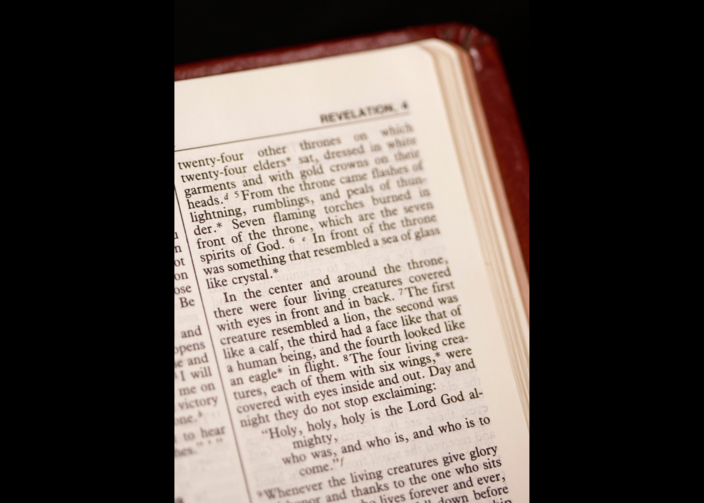A Reflection for the Memorial of St. Cecilia, Virgin and Martyr
He said to me, “Take and swallow it.
It will turn your stomach sour,
but in your mouth it will taste as sweet as honey.” (RV 10:8-11)
You can find today’s readings here.
As with most selections from the Book of Revelation, I am not quite sure what to make of today’s first reading—even less so when I read it in the context of the psalm and Gospel chosen for today. In all three, the theme of sweetness and a hunger for God’s word recurs: The psalmist proclaims that God’s promises and commands are “sweet to my taste”; likewise the followers of Jesus “were hanging on his words,” thwarting the chief priests’ plans to kill him after he drove the merchants from the temple.
The message of those two readings seems straightforward enough: God’s word is “sweet” to us, something we desire, and it thwarts evil. Yet in the first reading from Revelation, John describes how an angel tells him to swallow a small scroll that will taste sweet but turn his stomach sour. Even though the angel mentions the sourness first and then the sweetness—which could give the impression that the sweetness is what lasts—John describes tasting the sweetness first and then his stomach turning sour after. The experience, as he describes it, makes me think (in a decidedly less mystical way; sorry, John) of a lactose intolerant person eating ice cream: It’s sweet and delicious, but the consequence is an upset stomach. It’s the upset stomach he is still feeling when someone tells him, “You must prophesy again.”
What can we make of this? Certainly there is a rather easily-grasped message about, to borrow Carole King’s words, taking “the bitter with the sweet.” The laws the psalmist rejoices in are no doubt difficult ones to follow at times. The sweet words Jesus speaks in the temple will get him killed, and the people who hang on his words in this moment will largely abandon him when the sourness sets in, that is, during the Passion. But what do we make of the sourness that seems to outlast the sweet?
At the times when I’m confused by a reading (and writing America Scripture reflections has afforded me ample opportunities to be!), I am tempted to look to the eschaton—the end of the world, the end of the story, when all is set right—for hope. But today’s readings include a selection from Revelation, which is our canonical account of the eschaton, and it is exactly that reading that is leaving me with, to paraphrase our readings, a sourness in my stomach!
Perhaps, then, to conclude, I’d do well to take a lesson from the very reading that is confusing me: With sourness in his stomach, John hears a voice say, “You must prophesy again about many peoples, nations, tongues, and kings.” In other words, get on with doing what you’ve been called to do, even if there is sourness in your stomach—just like the Psalmist and Jesus do.








